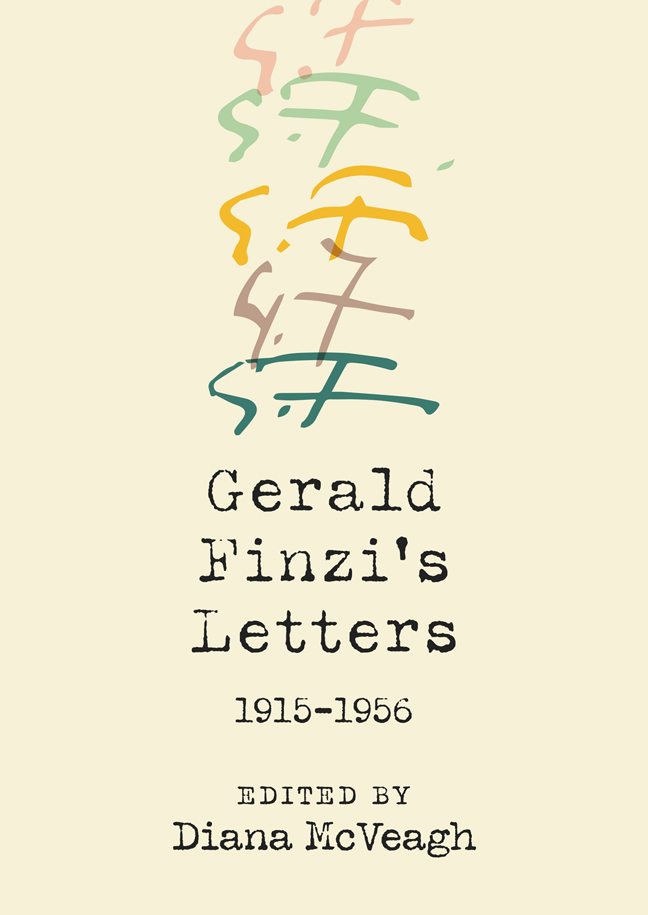Book contents
- Frontmatter
- Dedication
- Contents
- Illustrations
- Correspondents
- Editorial Conventions
- Acknowledgements
- Chronology
- Abbreviations
- Prologue
- 1 A Young Man's Exhortation, 1915–1933
- 2 Haste on my Joys! 1933–1939
- 3 Oh Fair to See, 1939–1941
- 4 Channel Firing, 1941–1945
- 5 Sing Out Cecilia's Name, 1945–1951
- 6 The Too Short Time, 1951–1956
- Epilogue
- Finzi's Circle
- Select Bibliography
- Index of Finzi's Compositions
- Index of Names
- Frontmatter
- Dedication
- Contents
- Illustrations
- Correspondents
- Editorial Conventions
- Acknowledgements
- Chronology
- Abbreviations
- Prologue
- 1 A Young Man's Exhortation, 1915–1933
- 2 Haste on my Joys! 1933–1939
- 3 Oh Fair to See, 1939–1941
- 4 Channel Firing, 1941–1945
- 5 Sing Out Cecilia's Name, 1945–1951
- 6 The Too Short Time, 1951–1956
- Epilogue
- Finzi's Circle
- Select Bibliography
- Index of Finzi's Compositions
- Index of Names
Summary
Letters are private, personal, and immediate. Each captures a single moment in time and experience. The writer and the reader are friends, each assumes much, much can be left unsaid. Few knowing Finzi only from his correspondence could infer his early background.
It was prosperous and secure. He was born into a London Jewish family, many of whose early Italian ancestors had been distinguished in public life. His forebears settled in England in the late eighteenth century. Gerald's close network was to be ripped apart by illness and war. His father and three elder brothers died by the time he was seventeen, then his admired young teacher was killed at the front. He was left in the care of a mother he considered foolish and weak, and with no male model. No family correspondence survives from his boyhood.
Little of this deprivation is suggested in these Letters. In them, he is the man he wished to be. He composed not only his music but his life. Ignoring his inherited Sephardi and Ashkenazy culture, he determinedly forged his own. As a young adult he set out for the countryside of Elgar and Vaughan Williams, of the Three Choirs Festival, and of the Cotswolds Arts and Crafts. He soon gathered like-minded friends: the first composer he came to know there was Herbert Howells. Then with Howard Ferguson there began a lifelong durable friendship despite their temperamental differences: Howard was seven years the younger, urban and European in outlook, homosexual, his musical style more classical than Finzi’s; what they shared was dedication and integrity. Their criticism of each other’s compositions was candid, even ruthless, but always good-tempered, often funny. Confusingly, Howard's letters to Gerald are addressed to ‘Dave’; he nicknamed Finzi's early combative piano Fantasia ‘Dave’, after David in the Biblical story of David and Goliath, and the name somehow stuck to Gerald. To Gerald, Ferguson was usually ‘Fergie’.
Though the Finzi family had lost money in the 1914–18 war, Gerald had just enough to live as a freelance composer. From his youth he had a sense of vocation, a humanistic belief in the value of the arts. He was a man of conviction, of high-minded idealistic assumptions.
- Type
- Chapter
- Information
- Gerald Finzi's Letters, 1915-1956 , pp. xxv - xxviPublisher: Boydell & BrewerPrint publication year: 2021

